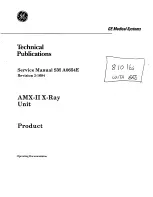
51
Automotive Diagnostic Platform GT75 User's Manual V1.01
simply has no idea where to set the throttle. The ECU must know the full
range of motion of the throttle in order for it to properly control the engine.
Using the throttle position sensors in the throttle body, the ECU learns the full
open and full closed positions through various states (idle, part throttle, WOT)
known as a Throttle Body Alignment (TBA).
6.6 Steering Angle Sensor (SAS) Calibration
SAS Calibration
menu let you perform calibration of the Steering Angle
Sensor, which permanently stores the current steering wheel position as
straight-ahead in the sensor EEPROM. On successful calibration of the
sensor, its fault memory is automatically cleared.
6.7 Continuous Variable Transmission (CVT)
This function is used to reset the compensation code and initialize the ECT
after a solenoid valve or valve body assembly has been replaced.
6.8 Gear Learning
The crankshaft position sensor learns crankshaft tooth machining tolerance
and saves to the computer to more accurately diagnose engine misfires. If
tooth learning is not performed for a car equipped with Delphi engine, the MIL
turns on after the engine is started. The diagnostic device detects the DTC P
1336 'tooth not learned'. In this case, you must the diagnostic device to
perform tooth learning for the car. After tooth learning is successful, the MIL
turns off.
After the engine ECU, crankshaft position sensor, or crankshaft flywheel is
replaced, or the DTC 'tooth not learned' is present, tooth learning must be
performed.
6.9 Tire Pressure Monitoring System Programming
TPMS Service
menu allows you to check the tire sensor IDs from the vehicle
ECU and to perform TPMS programming and reset after tires and/or TPM
sensors are replaced and/or tires are rotated.
6.10 Injector Coding
Write injector actual code or rewrite code in the ECU to the injector code of
the corresponding cylinder so as to more accurately control or correct
cylinder injection quantity. After the ECU or injector is replaced, injector code















































